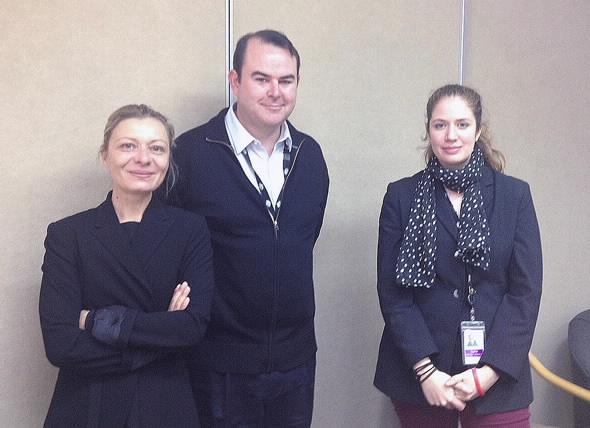

Published on the 10th September 2015 by ANSTO Staff
Call for applications: Applications close 4 November 2015
ANSTO and the French Embassy in Australia are supporting a scholarship program which aims to facilitate exchanges of students or young researchers living in France or Australia and working in the area of nuclear science and technology applied to life sciences.
The duration of the visit can be between 2 and 8 months, depending on the requirements of the host team, the project and other constraints related to overseas training. A project which can start in February 2016 is recommended. Projects available at ANSTO to be announced soon.
 |
| 2015 SAFE Scholarship recipient Gaelle Emvalomenos (right), who travelled to ANSTO from France with Anne Roualt (left), Scientific Attache, Embassy of France and Dr Arnaud Charil, Imaging Group Leader |
Eligibility criteria
Applicants must be:
- Enrolled as a student for a Master’s degree by research in a French or Australian university OR
- Enrolled as a PhD student in a French or Australian university OR
- Enrolled in a co-tutelle PhD between French and Australian institutions OR
- Holding a post-doctoral position in a French or Australian university or research institute
AND
- Carrying out a research project which stimulates research collaborations between France and Australia in the following area:
“Developing nuclear science and technologies applied to the investigation of physio-pathological variations”
The call for applications is open to students of all nationalities depending on eligibility for an Australian or French visa as appropriate.
Funding rules
The scholarship provides a maximum funding of $20,000 AUD, and contributes to the costs of the trip and/or accommodation for the duration of the project at ANSTO in Sydney, Australia, or the host institution in France.
The application form and supporting documents must be received at the Embassy of France in Australia before 4 November 2015, either by email (scanned documents) or by post.
Outcomes will be notified in late November/early December.